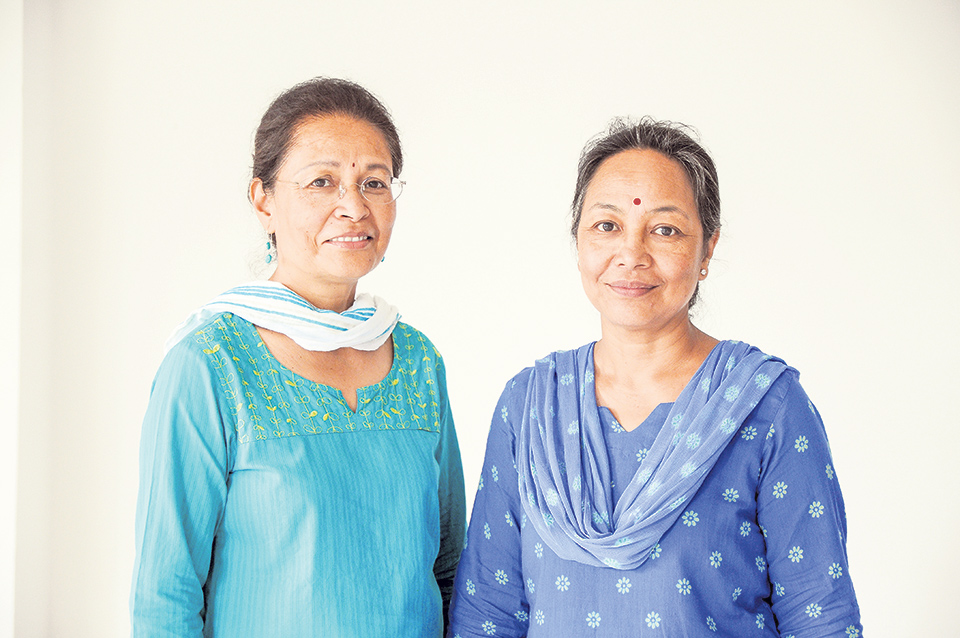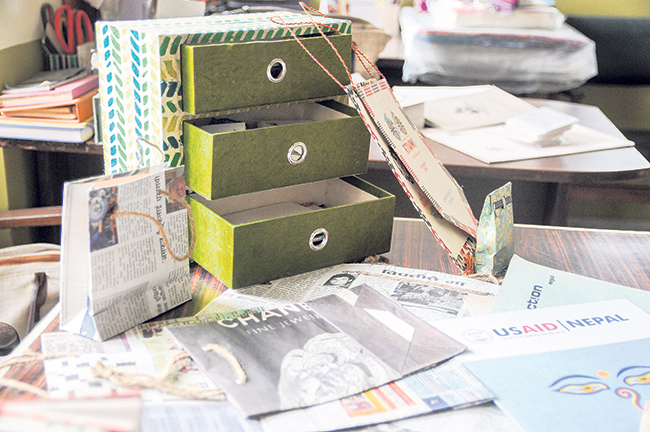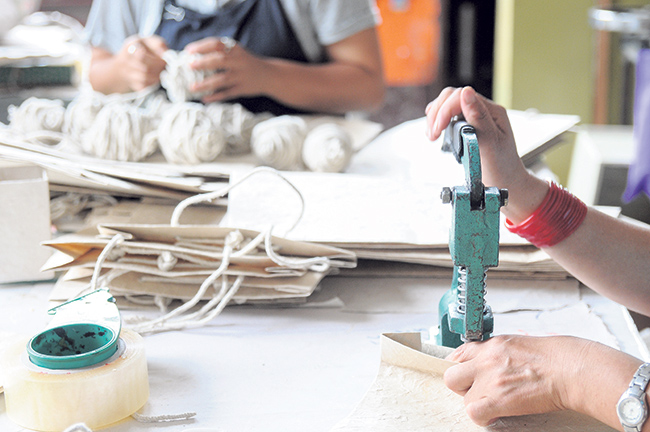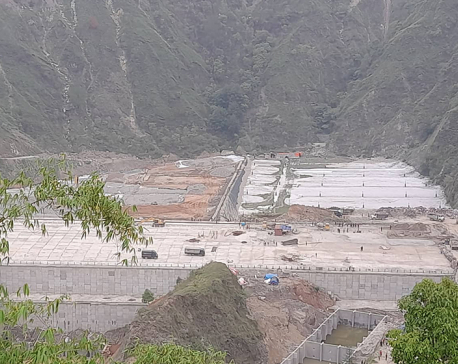
OR

Aruna Lacoul along with her sister Muna Shrestha established Jamarko in 2001. They aspired to open an eco-friendly cottage industry that would provide employment to underprivileged women.
The main objective of this venture was to minimize the amount of paper waste produced in Kathmandu. Hence, they started creating beautiful handmade stationery to lure customers and promote local, recycled and handmade products.
Growing up, the transition from a clean and beautiful city Kathmandu to an unmanaged and dusty place was clearly visible to the sisters. “Management of solid waste was an extremely pressing issue in Kathmandu.
And we wanted to do our bit to bring about a positive change,” says Lacoul. In order to learn how to minimize, recycle and reuse paper waste, both the sisters started attending various workshops, trainings and seminars, after which they became acquainted with the importance of conservation and news ways to create sustainable products. After all the training, they established a paper recycling company in the valley. Since then, Jamarko has been determinedly working for more than sixteen years to create a sustainable city.
 This organization collects waste paper including A4 sheet, magazines, and newspapers from various avenues around the valley. It then trains underprivileged women from the villages of Nepal to make attractive stationery items from it. “We closely analyze their skills and interests in the training and give them work accordingly,” says Lacoul.
This organization collects waste paper including A4 sheet, magazines, and newspapers from various avenues around the valley. It then trains underprivileged women from the villages of Nepal to make attractive stationery items from it. “We closely analyze their skills and interests in the training and give them work accordingly,” says Lacoul.
This way employment is created for marginalized women at Jamarko. After the completion of the final product, these paper made items are displayed and sold at the Jamarko showroom in Jhamsikhel. They even have an online portal from where consumers can buy an array of handmade paper products.
From attractive makeup boxes made of paper to diaries, bags, lamp shades, calendars and wall hangers, Jamarko has a wide variety of products. “These products are slightly more expensive than machine made stationery items. People often hesitate to buy it,” says Lacoul. “They fail to realize that their small investment can give a great boost to Nepali market and Nepal’s economy,” she adds.
 Along with recycling paper, Jamarko also sells traditional homemade Nepali paper made of Lokta fiber. “Lokta plant is harvested to make this kind of paper. Only the stem of this plant is used and the roots remain intact, hence, it is environment friendly,” says Lacoul. Jamarko also provides employment to marginalized people in rural parts of Nepal by buying these papers from the craftsmen and selling them in Kathmandu.
Along with recycling paper, Jamarko also sells traditional homemade Nepali paper made of Lokta fiber. “Lokta plant is harvested to make this kind of paper. Only the stem of this plant is used and the roots remain intact, hence, it is environment friendly,” says Lacoul. Jamarko also provides employment to marginalized people in rural parts of Nepal by buying these papers from the craftsmen and selling them in Kathmandu.
“It saddens me when I see big organizations buying our products only for specific seminars. They come to us when they want to portray themselves as environment friendly,” says Lacoul. According to her environmental conservation has now become more of a trend than responsibility.
She advises people to work for the environment in order to preserve it. “Start by making small changes,” says Lacoul. “Jamarko means to try and do something. We believe that if everyone tries in their own small space, there will surely be a big difference,” she concludes.
You May Like This

Locals threaten to obstruct dumping of garbage in Banchare Danda from August 17
KATHMANDU, July 28: The locals of Banchare Danda have announced that they will not allow the Kathmandu Valley’s waste to... Read More...

Shoojit Sircar's Pink wins Best Film, Alia Bhatt wins Best Actress
MUMBAI, Dec 5: Shoojit Sircar's critically-acclaimed Pink bagged as many as four awards, including for the Best Film, at the 23rd... Read More...

The best of the best
Man Booker Prize is the literary prize awarded each year for the best original novel, written in English, and published... Read More...








Just In
- NRB to provide collateral-free loans to foreign employment seekers
- NEB to publish Grade 12 results next week
- Body handover begins; Relatives remain dissatisfied with insurance, compensation amount
- NC defers its plan to join Koshi govt
- NRB to review microfinance loan interest rate
- 134 dead in floods and landslides since onset of monsoon this year
- Mahakali Irrigation Project sees only 22 percent physical progress in 18 years
- Singapore now holds world's most powerful passport; Nepal stays at 98th










Leave A Comment